Occupational Safety Training for Operating Water Sprinkler Trucks
99,000 ₫
Note: The above price is calculated per person and may fluctuate depending on the number of participants and market conditions. For more accurate pricing information, please refer to the pricing table or contact our consultants directly.
Occupational safety is a critical issue when operating water trucks and must be addressed promptly to ensure the health and safety of workers, as well as to enhance the reputation of enterprises. The Occupational Safety Training course is an effective solution to raise awareness on preventing workplace accidents for workers operating water trucks.
Table of Contents
Toggle1. Overview of Watering Trucks
a. What is a Watering Truck?
A watering truck, also called a watering vehicle, is a specialized vehicle designed to transport and spray water over areas that require irrigation. It is an important means for maintaining landscapes, cooling environments, and supplying water to areas needing special care.
Watering trucks are usually equipped with modern water spraying systems, which can be remotely controlled and adjustable in pressure and spray pattern depending on specific usage purposes.

b. Operating Principle of Watering Trucks
The operating principle of a watering truck depends on the specific design of each vehicle. However, the general operation of most watering trucks can be described as follows:
- Water Pump: Watering trucks are typically equipped with one or more water pumps. The pump draws water from a source (usually a tank or reservoir on the truck) and increases the water pressure to deliver it higher or farther depending on the intended use.
- Water Piping System: Water is pumped through pipes from the pump to the points to be watered. These pipes are usually flexible and adjustable to suit the terrain and size of the area.
- Spray System: Watering trucks often have spray systems mounted on the vehicle structure. Nozzles can be designed to produce jets, streams, or specific spray patterns depending on the purpose.
- Control System: Watering trucks are usually equipped with control systems to manage water pressure, spray direction, and flow rate. Some modern watering trucks can be remotely controlled or programmed to operate automatically on specific schedules.
- Water Source: Water is supplied from a source, which may be a storage tank on the truck or an external source such as a reservoir or public water supply.

c. Industries Using Watering Trucks
Watering trucks are widely used in various industries to meet specific needs. The main sectors using watering trucks include:
- Landscape and Park Maintenance: Watering trucks are used to water grass, flowers, and plants in parks, gardens, and other public landscaped areas.
- Agriculture: In agriculture, watering trucks can be used to irrigate crops in fields and gardens.
- Urban Management: Cities often use watering trucks to water roadside grass, cool roads, and control dust.
- Firefighting: Some watering trucks are used as firefighting vehicles to deliver water to fire sites.
- Air Pollution Control: Watering trucks can also be used to clean the air by spraying water to reduce dust and air pollution.
- Construction: In construction projects, watering trucks help cool the ground, reduce dust, and control moisture.
- Military and Security: Watering trucks may be used in military and security operations for crowd control, cooling, or cleaning contaminated areas.
2. Overview of Safety Training for Operating Watering Trucks
a. What is Occupational Safety Training?
- Occupational safety training for operating watering trucks consists of lessons that equip workers with awareness of workplace accident prevention. Workers directly involved with watering trucks belong to Group 3.
- The training course helps workers recognize and avoid hazards, reducing the risk of occupational accidents during work.
REGISTER FOR OCCUPATIONAL SAFETY TRAINING
b. Training Duration
Initial Safety Training Duration
- Total training hours must be at least 24 hours, including testing time.
- 8 hours of theory on occupational safety policies and laws
- 8 hours of theory on basic occupational safety knowledge
- 4 hours of theory on specialized training content
- 2 hours of practical training on specialized content
- 2 hours of final theory test
The safety training center schedules multiple sessions depending on workers’ availability. Usually, there are 6 sessions over 3 days, provided the company arranges continuous learning time.
Periodic Safety Training Duration
- Before the occupational safety card expires, workers who want to renew it must undergo periodic occupational safety training, with training hours at least 50% of the initial training duration.
Explanation: The total duration of periodic occupational safety training is at least 12 hours, including testing time. After completing the training and passing the test, workers will have their occupational safety cards renewed.
c. Training Content
| No. | TRAINING CONTENT | TRAINING HOURS | |||
| Total | Including | ||||
| Theory | Practice | Test | |||
| I | Occupational safety policies and legal system | 8 | 8 | 0 | 0 |
| 1 | Overview of regulations on occupational safety and hygiene. | 6 | 6 | ||
| 2 | Standards and technical regulations on occupational safety and hygiene. | 1 | 1 | ||
| 3 | Specific regulations from state management agencies on occupational safety for construction, expansion, or renovation of production facilities, machinery, equipment, and hazardous substances. | 1 | 1 | ||
| II | Basic knowledge on occupational safety | 8 | 8 | 0 | 0 |
| 1 | Basic knowledge of hazards in the workplace. | 4 | 4 | ||
| 2 | Methods to improve working conditions. | 1 | 1 | ||
| 3 | Safety culture in production and business. | 1 | 1 | ||
| 4 | Rights and responsibilities of employers and employees; occupational safety policies; role of safety networks and officers. | 1 | 1 | ||
| 5 | Occupational safety rules, signage, use of safety equipment, personal protective equipment, first aid, and occupational disease prevention. | 1 | 1 | ||
| III | Specialized training content | 6 | 4 | 2 | 0 |
| Comprehensive knowledge of machinery, equipment, hazardous substances, risk assessment, and safe working procedures. | 6 | 4 | 2 | ||
| IV | Final Test | 2 | 2 | 0 | 0 |
| Total | 24 | 22 | 2 | ||
See more training content for all 6 groups
d. Occupational Safety Card
After completing the safety training and passing the test, workers will be issued an occupational safety card (commonly called a Group 3 safety certificate).
The card shows details such as name, date of birth, job, work environment, training duration, red stamp, and signature confirming completion.
According to Article 24, Clause 2 of Decree 44/2016/ND-CP, there are two cases:
- If the employer and employee have an employment contract, the employer must sign and stamp the card for the Group 3 trainee after completion and passing the test.
- If the worker is freelance or seasonal without a contract, the training unit must sign and stamp the card after completion and passing the test.

3. Hazards When Operating a Watering Truck
Operating a watering truck must be done carefully to avoid potential hazards. Here are some typical risks:
- Traffic accidents: Watering trucks usually move at low speeds and frequently stop to water. However, failure to follow traffic rules or lack of attention by the driver can lead to collisions or traffic accidents.
- Fire risk: Using pumps and water systems may pose a fire hazard, especially if mechanical parts are faulty or water leaks occur near high-temperature components.
- Unsafe water sources: Using unsafe or contaminated water can harm the environment and human health.
- Chemical exposure: If the truck is used to spray chemicals (such as fertilizers, herbicides, or pesticides), there is a risk of environmental pollution and negative health impacts.
- Ineffective cooling: In some cases, watering trucks are used for cooling roads or other areas. Poor design or operation can lead to water waste and insufficient cooling.
- Driver and operator safety: Drivers and operators must follow safety measures, especially when working near spray systems, water pools, or during maintenance.

4. Measures to Prevent Workplace Accidents When Operating a Watering Truck
To control workplace accidents while operating watering trucks, operators and managers must implement key safety measures. Here are some specific measures:
- Training and Education:
- All operators must be trained on safety procedures, equipment use, and emergency measures.
- Guide operators to comply with traffic rules when on public roads.
- Regular Inspection and Maintenance:
- Perform periodic inspections and maintenance, especially for water pumps, spray systems, and safety equipment.
- Check the condition of water pumps, pipes, and other components to ensure proper and safe operation.
- Safety Equipment:
- Ensure all drivers and nearby workers wear proper personal protective equipment, including helmets, safety glasses, gloves, and safety shoes.
- Use warning devices and lights to increase visibility of the truck in low-light conditions.
- Weather Management:
- Avoid operating the truck in adverse weather such as heavy rain, strong winds, storms, or snow.
- Schedule operations to prevent dangerous weather conditions.
- Compliance with Traffic Safety Rules:
- Follow traffic rules when moving on public roads.
- Use warning lights and signs to indicate truck location and direction.
- Water Quality Control:
- Ensure water is safe and free from harmful contaminants for both human health and the environment.
- Maintenance of Spray Systems:
- Inspect and maintain spray systems to prevent leaks and ensure safe operation.
- Emergency Planning:
- Identify and train a rescue team to respond to emergencies in case of accidents.
- Periodic inspection of watering trucks helps detect safety issues such as mechanical failures or wear early, reducing the risk of workplace accidents.
5. Benefits of Occupational Safety Training
An Toàn Nam Việt provides your business with the following benefits upon completing occupational safety training courses under Decree 44/2016/ND-CP on occupational health and safety:
- Workers can recognize potential accident risks and take preventive measures to avoid workplace accidents.
- Your business can establish risk prevention measures in production, operation, and maintenance processes.
- Reduce costs associated with safety risks in the workplace.
- Uninterrupted production improves labor productivity and product quality.
- Compliance with labor safety laws avoids legal risks.
- Enhances professionalism and reputation, boosting your brand image.
Nam Việt’s training courses help prevent external factors from causing harm, allowing individuals to avoid injuries or even fatal accidents.
REGISTER FOR OCCUPATIONAL SAFETY TRAINING
6. Customer Feedback After Completing Training
An Toàn Nam Việt has many years of experience accompanying businesses across Vietnam, particularly in southern provinces. This responsibility is invaluable, and our occupational safety training is continuously improved for professionalism. The motivation for our growth comes from positive feedback and suggestions from businesses. Here are some testimonials from our clients:
See more customer interviews after using our services from An Toàn Nam Việt
7. An Toàn Nam Việt’s Occupational Safety Training Capability
An Toàn Nam Việt is a reputable occupational safety training center in Vietnam, conducting continuous training at factories, production facilities, and construction sites nationwide (all 63 provinces).
REGISTER FOR OCCUPATIONAL SAFETY TRAINING
Occupational safety training certification
- An Toàn Nam Việt has been inspected and certified by the Department of Safety under the Ministry of Labor, Invalids and Social Affairs, confirming our qualification to provide occupational safety and hygiene training. This strengthens our training capabilities.

Materials and Lectures
- Before being used in training courses, materials are reviewed to ensure accuracy and practical effectiveness.
- Lecturer teaching methods follow An Toàn Nam Việt standards, developed by experts in occupational safety and hygiene to maximize knowledge absorption.
Facilities
- Control of classroom conditions enhances teaching efficiency and student learning outcomes.
- Our training facilities feature spacious classrooms with proper lighting and equipment for optimal training conditions.
8. Nationwide Reputable Safety Training Center
At An Toàn Nam Việt, we prioritize professional occupational safety training. Teaching workers to protect themselves contributes to national development.
To ensure effective training, we meticulously prepare tools, teaching aids, curricula, audio, and lighting.
Our trainers are experts with years of experience and research in identifying hazards and preventive measures.
Lectures are practical, engaging, and easy to understand. Knowledge is aligned with Decree 44/2016/ND-CP.
Our training center offers:
- Competitive training costs with guaranteed quality.
- Flexible training schedules aligned with production.
- Quick, legally-compliant certification procedures.
- Experienced trainers.
- Controlled classrooms for effective learning.
- Lessons tailored to enterprise safety needs.
- Dedicated and professional customer support.

9. Additional Occupational Safety Training Resources
- Safety materials for operating a watering truck
- Occupational safety training material set
- Occupational safety training test set
- Occupational safety quiz for watering truck operation
- Slides for occupational safety training on watering truck operation
1 review for Occupational Safety Training for Operating Water Sprinkler Trucks
No comments yet

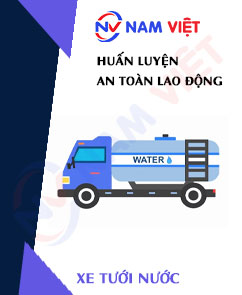
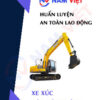
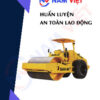

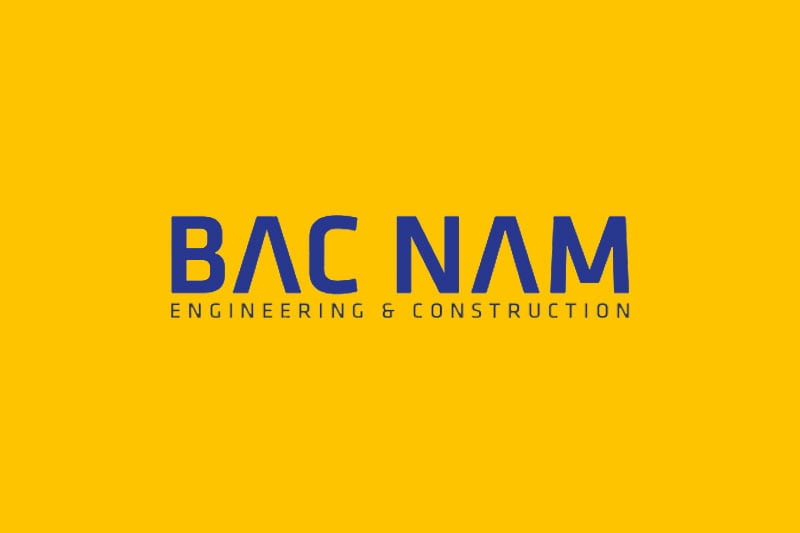


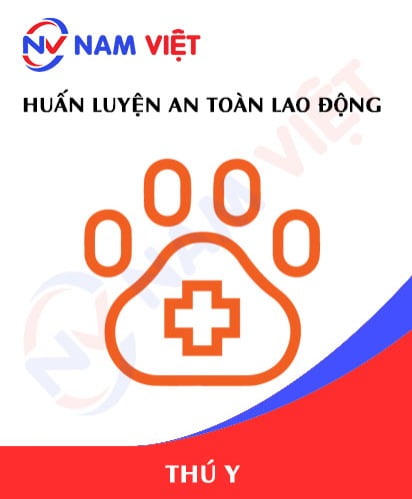
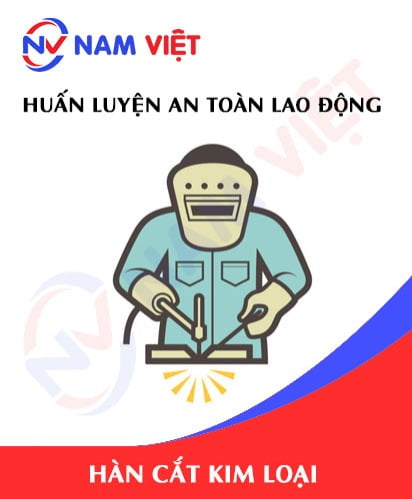




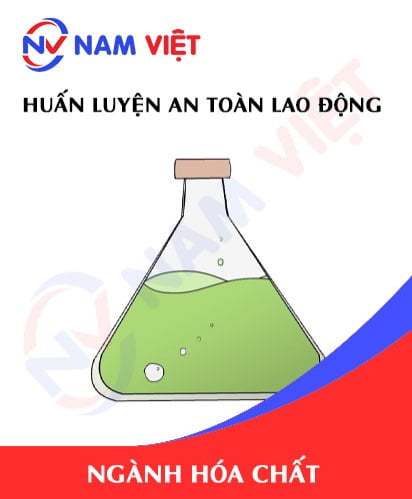
phanminhhang341
Very good safety training service